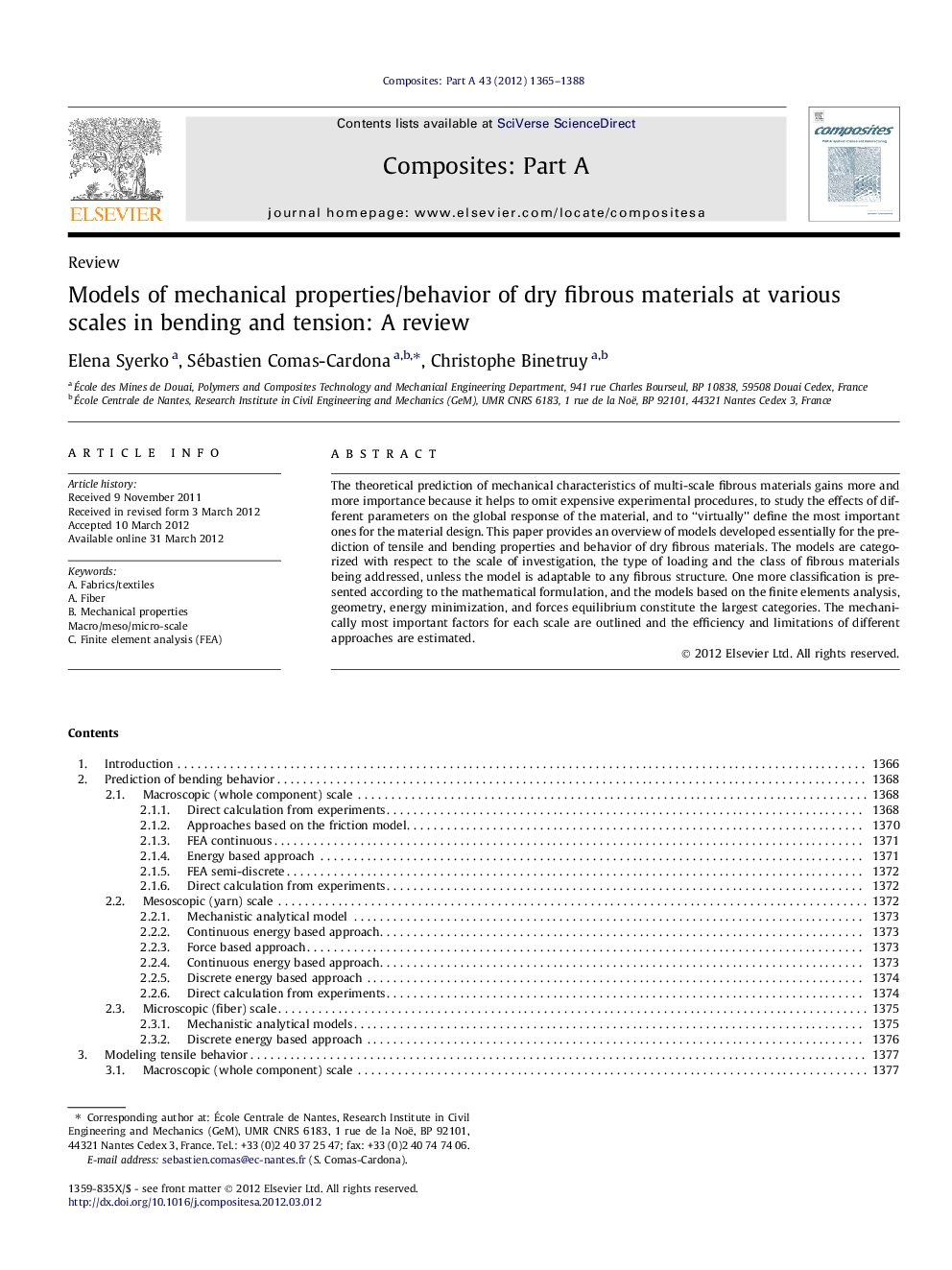| Article ID | Journal | Published Year | Pages | File Type |
|---|---|---|---|---|
| 1466402 | Composites Part A: Applied Science and Manufacturing | 2012 | 24 Pages |
The theoretical prediction of mechanical characteristics of multi-scale fibrous materials gains more and more importance because it helps to omit expensive experimental procedures, to study the effects of different parameters on the global response of the material, and to “virtually” define the most important ones for the material design. This paper provides an overview of models developed essentially for the prediction of tensile and bending properties and behavior of dry fibrous materials. The models are categorized with respect to the scale of investigation, the type of loading and the class of fibrous materials being addressed, unless the model is adaptable to any fibrous structure. One more classification is presented according to the mathematical formulation, and the models based on the finite elements analysis, geometry, energy minimization, and forces equilibrium constitute the largest categories. The mechanically most important factors for each scale are outlined and the efficiency and limitations of different approaches are estimated.
